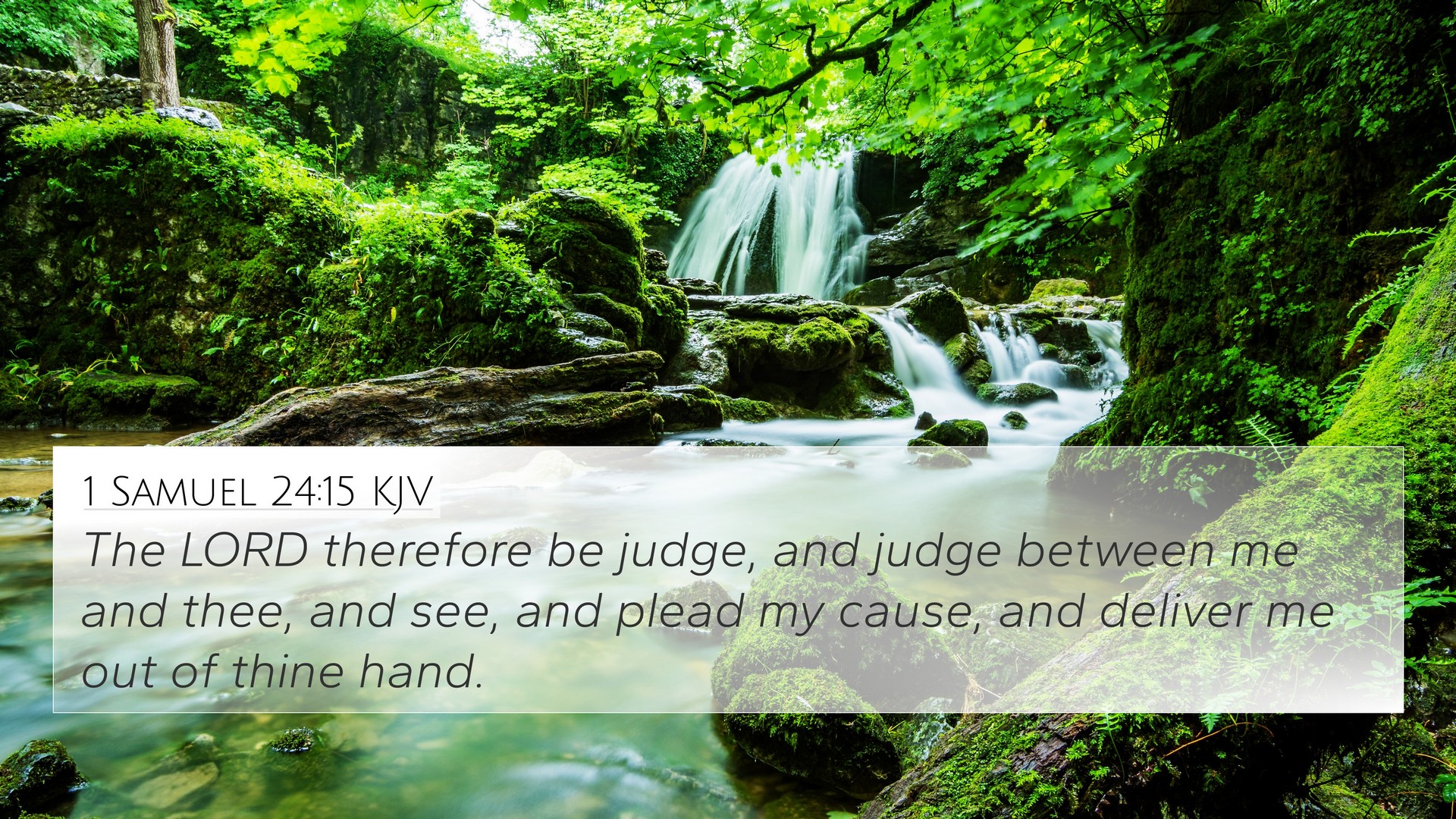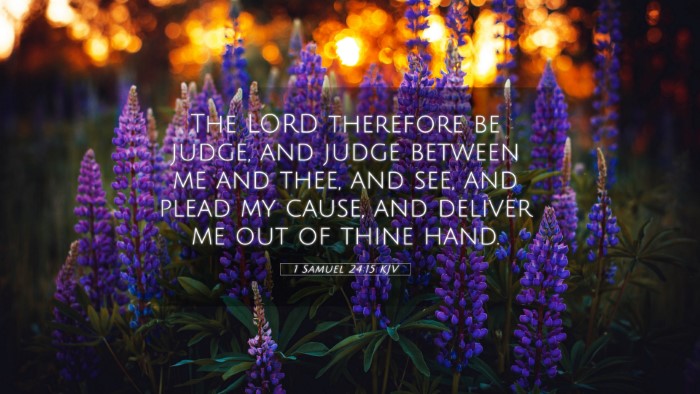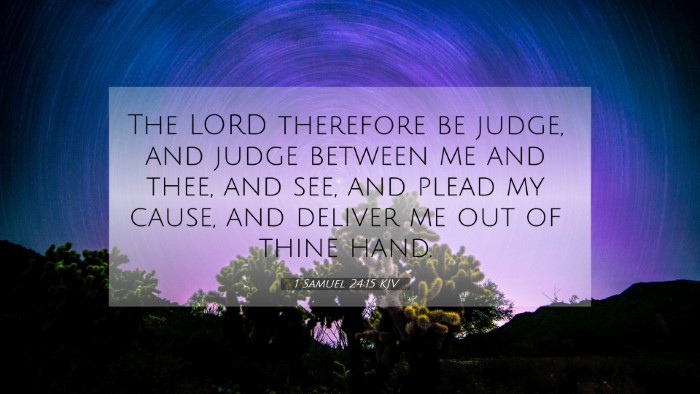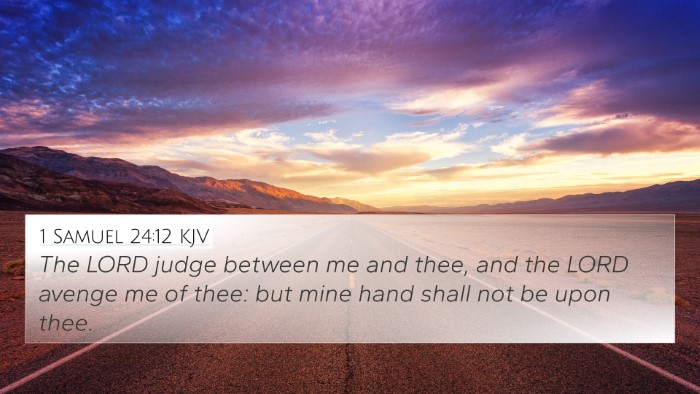Understanding 1 Samuel 24:15
The verse 1 Samuel 24:15 states, "The Lord therefore be judge, and judge between me and thee, and see, and plead my cause, and deliver me out of thine hand." This verse highlights a crucial moment in the life of David as he appeals to God's justice while facing King Saul.
Contextual Overview
To better understand this verse, we delve into its context within the greater narrative of 1 Samuel. At this point, David is being pursued by Saul, who sees David as a rival threat to his throne. David's plea reflects both his innocence and his trust in God's ultimate justice.
Commentary Insights
- Matthew Henry's Commentary: Henry emphasizes David’s integrity and his reliance on God. David does not take matters into his own hands but appeals to God as the ultimate judge who knows the hearts of men.
- Albert Barnes' Notes: Barnes notes that David's words illustrate his understanding of divine justice and his faith in God’s ability to deliver him. This highlights a theological principle that God is sovereign and will protect the righteous.
- Adam Clarke's Commentary: Clarke points out the significance of David's respectful tone towards Saul, showing humility and a desire for reconciliation rather than vengeance. His appeal for God's judgment illustrates the importance of divine intervention in conflicts.
Thematic Connections
This verse connects to several overarching Biblical themes, such as justice, mercy, and the providence of God. It serves as an example for believers on handling strife and conflict through reliance on God's judgment rather than seeking personal vengeance.
Cross-References
To gain a deeper understanding of 1 Samuel 24:15, consider the following related Bible verses:
- Psalms 7:8: "The Lord shall judge the people: judge me, O Lord, according to my righteousness, and according to mine integrity that is in me."
- Psalms 9:4: "For thou hast maintained my right and my cause; thou satest in the throne judging right."
- Psalms 26:1: "Judge me, O Lord; for I have walked in mine integrity: I have trusted also in the Lord; therefore I shall not slide."
- Romans 12:19: "Dearly beloved, avenge not yourselves, but rather give place unto wrath: for it is written, Vengeance is mine; I will repay, saith the Lord."
- James 4:12: "There is one lawgiver, who is able to save and to destroy: who art thou that judgest another?"
- Matthew 7:1: "Judge not, that ye be not judged."
- Proverbs 20:22: "Say not thou, I will recompense evil; but wait on the Lord, and he shall save thee."
- Isaiah 33:22: "For the Lord is our judge, the Lord is our lawgiver, the Lord is our king; he will save us."
- 1 Peter 2:23: "Who, when he was reviled, reviled not again; when he suffered, he threatened not; but committed himself to him that judgeth righteously."
- Jeremiah 11:20: "But, O Lord of hosts, that judgest righteously, that triest the reins and the heart, let me see thy vengeance on them: for unto thee have I revealed my cause."
Conclusion
In conclusion, 1 Samuel 24:15 profoundly speaks about the nature of justice and the importance of trusting in God for deliverance and judgment amid adversity. Utilizing tools for Bible cross-referencing, one can see the rich interconnections between this verse and others throughout Scripture, reinforcing the Biblical principles of integrity, justice, and divine providence. This verse serves as a powerful reminder for believers to seek God's guidance in their conflicts and to trust in His timing and justice.










